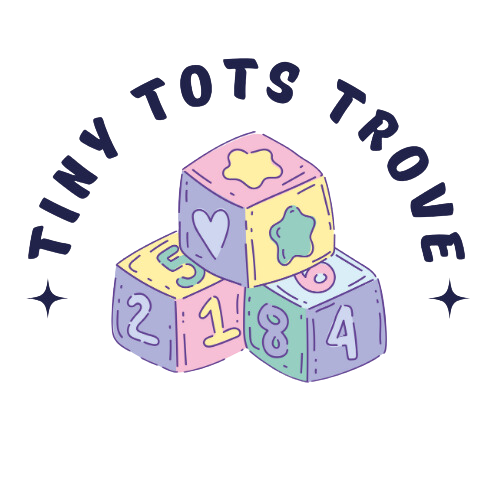
Montessori-Inspired Chores for Babies and Toddlers: A Guide from 6 Months to 3 Years
Teaching independence starts early, and Montessori-inspired activities are the perfect way to involve your child in day-to-day tasks while supporting their development. From 6 months to 3 years old, children progress rapidly in their motor, sensory, and cognitive abilities, making it possible to introduce age-appropriate "chores" as they grow.
Research from Harvard University highlights the long-term benefits of involving children in household chores from an early age. According to the study, children who participate in chores during their formative years are more likely to experience higher levels of happiness and a sense of fulfilment in adulthood. This underscores the importance of teaching practical life skills early on.
Here’s a breakdown of Montessori-inspired tasks you can introduce, divided into developmental milestones every three months.
6–9 Months: Laying the Foundation for Independence
1. Toy Tidying
Encourage your baby to place toys into a basket or container.
-
- How: Provide a shallow basket and show them how to drop a toy into it.
- Skills Developed: Hand-eye coordination, fine motor skills, and the beginning of task awareness.
2. Wiping Surfaces (With Supervision)
Provide a small, damp cloth for wiping their highchair tray or table.
-
- How: After eating, guide their hand to mimic wiping motions.
- Skills Developed: Gross motor coordination and participation in cleanup.
3. Water Play for Washing
Introduce simple washing activities during water play.
-
- How: Provide a small sponge or cloth for them to "wash" toys in a shallow bowl of water.
- Skills Developed: Sensory exploration and grip strengthening.
4. Dropping Objects into a Container
Encourage your baby to drop safe objects into a box or basket.
- How: Use large beads or cloth balls and demonstrate how to drop them into the container.
- Skills Developed: Cause-and-effect understanding and fine motor skills.
9–12 Months: Building Motor Skills and Participation
1. Sorting and Stacking
Introduce sorting tasks using safe, baby-friendly objects.
-
- How: Provide soft blocks or stacking rings and encourage them to sort by size or colour.
- Skills Developed: Problem-solving, classification skills, and coordination.
2. Folding Cloths
Allow your baby to explore folding small napkins or washcloths.
-
- How: Demonstrate folding motions and guide their hands to mimic.
- Skills Developed: Motor skills, spatial awareness, and focus.
3. Helping with Dressing
Encourage your baby to assist in dressing by pulling off socks or hats.
-
- How: Start with loose-fitting items and praise their efforts.
- Skills Developed: Gross motor coordination and self-care awareness.
4. Self-Feeding
Support their independence during mealtimes.
- How: Provide baby-safe utensils and finger foods for practice.
- Skills Developed: Fine motor coordination and autonomy.
12–18 Months: Early Toddler Exploration
1. Sweeping with a Small Broom
Provide a toddler-sized broom for cleaning up crumbs.
-
- How: Show them how to sweep and encourage participation by modelling the behaviour.
- Skills Developed: Gross motor coordination and task responsibility.
2. Putting Dirty Clothes in a Hamper
Teach them to put their clothes into a laundry basket.
-
- How: Place the basket at their level and guide them initially.
- Skills Developed: Organisation and spatial awareness.
3. Carrying Lightweight Items
Encourage your toddler to help carry small, lightweight objects.
-
- How: Provide folded towels or soft toys for them to transport.
- Skills Developed: Coordination and contributing to household tasks.
4. Cleaning Up Spills
Teach your toddler to wipe up spills with a small cloth.
- How: Show them how to dab or wipe and offer assistance as needed.
- Skills Developed: Responsibility and motor coordination.
18–24 Months: Gaining Independence
1. Feeding Pets
Allow your toddler to help with feeding household pets.
-
- How: Provide a scoop for pet food and guide them on how to fill the bowl.
- Skills Developed: Empathy, care for others, and task completion.
2. Washing Vegetables
Introduce simple meal preparation tasks.
-
- How: Provide a bowl of water and soft vegetables like carrots for them to rinse.
- Skills Developed: Sensory exploration and contribution to meal preparation.
3. Stacking Plates or Cups
Encourage them to help set the table.
-
- How: Use non-breakable dishes and guide them in placing items carefully.
- Skills Developed: Coordination and purposeful movement.
4. Watering Plants
Allow them to care for indoor plants using a small watering can.
- How: Demonstrate how to pour gently and let them try.
- Skills Developed: Connection to nature and responsibility.
2–3 Years: Mastering Skills and Growing Confidence
1. Setting the Table
Teach your toddler to help prepare for meals.
-
- How: Provide child-safe utensils, napkins, and plates for them to arrange.
- Skills Developed: Organisational skills and responsibility.
2. Folding Laundry
Let them assist in folding small laundry items.
-
- How: Start with simple items like socks or washcloths and demonstrate folding motions.
- Skills Developed: Fine motor skills and task focus.
3. Dusting Furniture
Encourage them to dust easy-to-reach surfaces.
-
- How: Provide a small duster and show them how to clean gently.
- Skills Developed: Coordination and pride in contributing.
4. Tidying Up Their Room
Teach them to organise their toys and belongings.
- How: Create designated spots for toys and guide them through the process.
- Skills Developed: Organisation and ownership of their space.
Tips for Parents
- Model First: Demonstrate the activity so your child can imitate.
- Keep It Simple: Tasks should match your child’s abilities.
- Celebrate Efforts: Focus on their participation, not perfection.
- Create a Routine: Consistency helps toddlers understand their role.
Montessori-inspired chores from 6 months to 3 years give children the chance to explore, contribute, and develop essential life skills. These tasks encourage independence and responsibility while fostering a sense of accomplishment. Furthermore, as highlighted by Harvard research, involving children in household chores from an early age can lead to greater happiness and fulfilment in adulthood.
Have you tried Montessori-inspired activities with your little one? Share your stories with us on Instagram by tagging @tiny.tots.trove!
Credits and References
- Montessori, M. (1967). The Absorbent Mind. Holt, Rinehart, and Winston.
- American Montessori Society. (n.d.). What Is Montessori? Retrieved from https://amshq.org
- Centres for Disease Control and Prevention (CDC). (2023). Learn the Signs. Act Early. Developmental Milestones. Retrieved from https://www.cdc.gov
- Zero to Three. (2023). Promoting Self-Help Skills in Babies and Toddlers. Retrieved from https://www.zerotothree.org
- The Montessori Foundation. (n.d.). Practical Life Activities in the Montessori Environment. Retrieved from https://montessori.org
- The Montessori Notebook. (n.d.). Montessori at Home Tips for Toddlers. Retrieved from https://www.themontessorinotebook.com
- Harvard University’s Centre on the Developing Child. (2023). Building the Brain’s “Air Traffic Control” System: How Early Experiences Shape Executive Function. Retrieved from https://developingchild.harvard.edu
- Heffernan, T. (2019). The Montessori Toddler. Workman Publishing.
- The Kavanaugh Report. (n.d.). Montessori Practical Life Activities for Babies and Toddlers. Retrieved from https://www.thekavanaughreport.com



